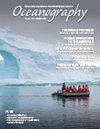无薪实习是海洋科学多元化和公平招聘的障碍
IF 2.8
4区 地球科学
Q1 OCEANOGRAPHY
引用次数: 0
摘要
无薪实习为学生和早期职业人士提供了在他们感兴趣的领域获得工作经验的机会。实习生通过获得对该领域或行业的更深入了解以及关键的人际网络机会来获得报酬,而不是支付劳动报酬。对于职业生涯早期的个人来说,完成无报酬的工作经历几乎是不可避免的,以获得在竞争激烈、激情驱动的领域中脱颖而出所需的经验(Bailey et al.,2022)。对于非富裕社会经济背景的人来说,决定以无薪职位开始海洋科学职业生涯可能是一个排斥点,而缺乏经济和专业支持所带来的压力可能会导致个人在职业生涯的早期阶段退出该领域。无薪实习阻碍了多样化的招聘,并导致海洋科学极度缺乏多样性(Bernard和Cooperdock,2018,图1)。充分补偿进入该领域的个人的工作将增加入门级职位的多样性,并促进早期职业研究人员的发展。然后,这些人更有可能晋升到更高级别的永久职位,从而提高整个海洋科学各个职业层次的多样性(Fournier等人,2019;Osiecka等人,2022)。本文章由计算机程序翻译,如有差异,请以英文原文为准。
Unpaid Internships Are a Barrier to Diverse and Equitable Recruitment in Marine Science
Unpaid internships provide opportunities for students and early career individuals to gain work experience in a field of their interest. In lieu of payment for their labor, interns are compensated by gaining deeper knowledge of the field or industry as well as critical networking opportunities. Completing an unpaid work experience is nearly unavoidable for early career individuals to gain the experience required to stand out within a competitive, passion-driven field (Bailey et al., 2022). Deciding to begin a career in marine science with an unpaid position can be an exclusionary point for people from non-affluent socioeconomic backgrounds, and the stress experienced from a lack of financial and professional support can lead to individuals exiting the field in the early stages of their career. Unpaid internships impede diverse recruitment and contribute to the overwhelming lack of diversity in the ocean sciences (Bernard and Cooperdock, 2018, Figure 1). Adequately compensating individuals entering the field for their work would increase diversity in entry level positions and promote the development of early career researchers. These individuals would then be more likely to advance into higher level, permanent positions, thereby improving diversity in all career levels throughout marine science (Fournier et al., 2019; Osiecka et al., 2022).
求助全文
通过发布文献求助,成功后即可免费获取论文全文。
去求助
来源期刊

Oceanography
地学-海洋学
CiteScore
6.10
自引率
3.60%
发文量
39
审稿时长
6-12 weeks
期刊介绍:
First published in July 1988, Oceanography is the official magazine of The Oceanography Society. It contains peer-reviewed articles that chronicle all aspects of ocean science and its applications. In addition, Oceanography solicits and publishes news and information, meeting reports, hands-on laboratory exercises, career profiles, book reviews, and shorter, editor-reviewed articles that address public policy and education and how they are affected by science and technology. We encourage submission of short papers to the Breaking Waves section that describe novel approaches to multidisciplinary problems in ocean science.
 求助内容:
求助内容: 应助结果提醒方式:
应助结果提醒方式:


